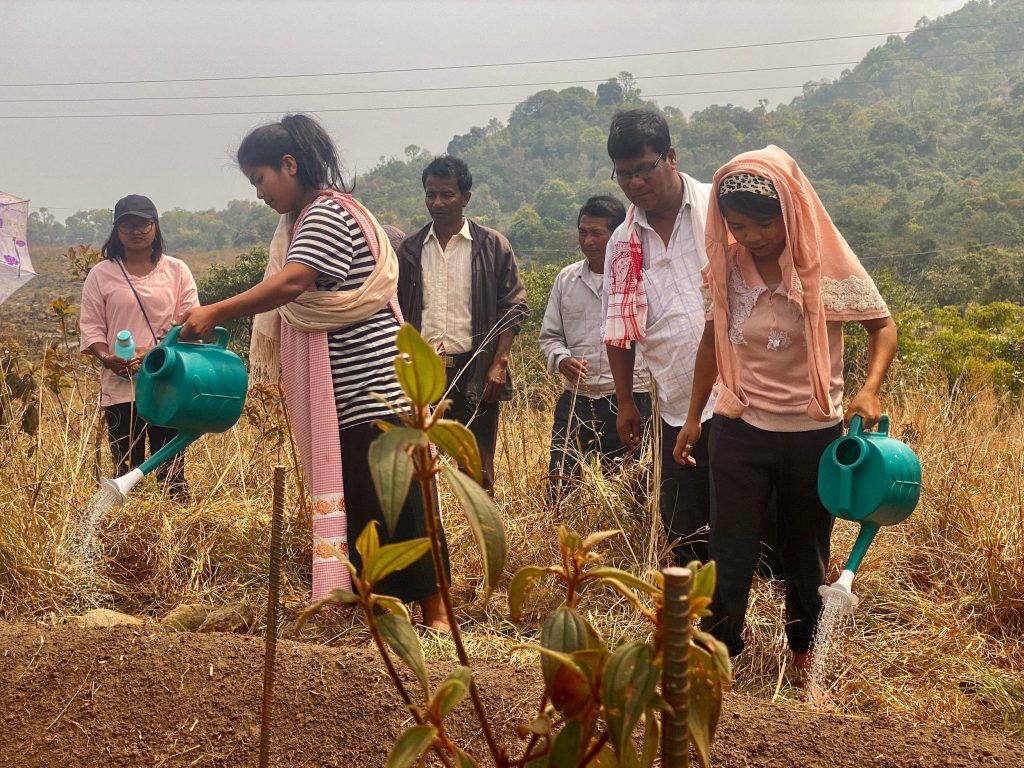
Climate crisis
Climate change is a growing concern. In November 2021 at the COP26 climate conference in Glasgow, Prime Minister Shri Narendra Modi put forward his vision of LiFE – Lifestyles for Environment as a key approach to promoting sustainability and combating climate change. “LiFE puts individual and collective duty on everyone to live a life that is in tune with Earth and does not harm it.” In line with this vision, Plant 4 India aims to demonstrate sustainable living practices in rural communities and empower them to utilise natural resources mindfully and deliberately.
The decade 2011-2020 was the hottest on record globally (WMO 2021). We are seeing an increase “in the frequency and intensity of climate and weather extremes, including hot extremes […], heavy precipitation events, drought and fire weather” (IPCC 2022, p. 9). Changing weather patterns are causing crop loss and increased water and food insecurity and related public health challenges (IPCC 2022, UNEP 2009). Roughly half of the world’s population currently experience severe water scarcity for at least one month a year (Burek et al. 2016, IPCC 2022, Mekonnen & Hoekstra 2016). Erosion and other environmental problems are causing us to lose topsoil at an alarming rate and we might only have 60 years of harvests left worldwide (FAO 2015, FAO & ITPS 2015).
India is considered to be one of the countries that is most vulnerable to climate change as it has an agriculture-based economy (Climate Risk Index 2021). More than 80% of the Indian population is vulnerable to extreme weather events (CEEW 2021). In 2020 4 million people were displaced in India due to climate disasters (World Migration Report 2022). By the end of the century, temperatures in the densely populated areas of the Indus and Ganges river basins could exceed what is liveable for humans (Im et al. 2017). According to the most recent IPCC report, India could be one of the countries most badly affected by sea level rise, with around 35 million people facing annual coastal flooding by mid century. The melting of glaciers in the Himalayas severely threatens water supply in the Ganges and will lead to water shortage and affect agriculture and food security (NICS 2022, UNEP 2007).
In order to tackle these issues, we need a strong, cohesive and collective response. There are more people needed to work against climate destruction and protect our climate. If we take action now, it would dramatically increase the chances of a safe future for present and future generations. Plant 4 India is here to inspire people to do just that! Plant 4 India Fellows will work closely with climate vulnerable communities in rural and tribal areas of India and help them build climate resilience and food & water security.